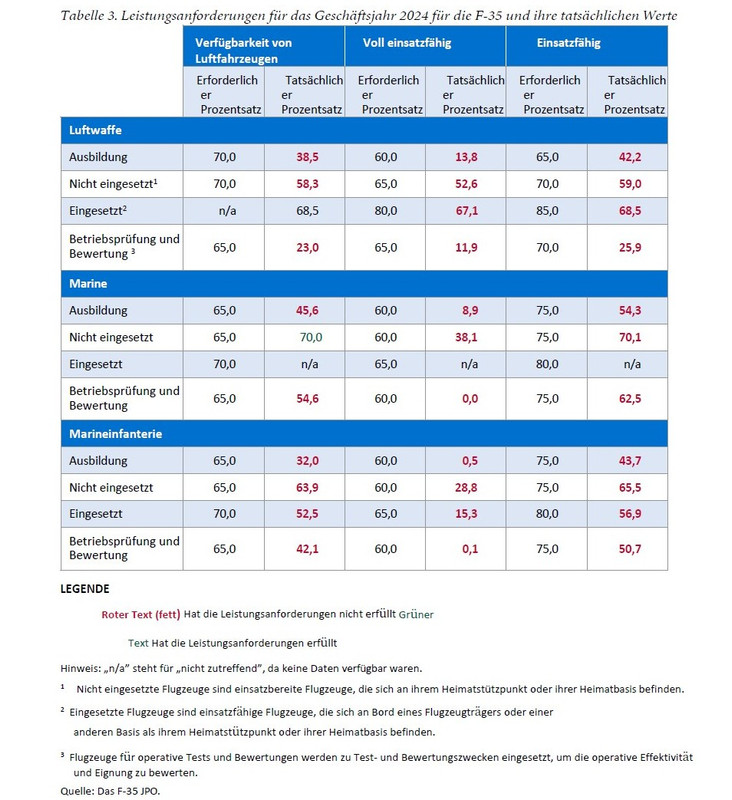Re: F-35 Lightning II als Nachfolger für den Eurofighter?
Verfasst: So 23. Mär 2025, 15:04
Wieso dürfen die Israelies eigene Computersysteme haben - aber sonst keiner?
Forum für Österreichs Militärgeschichte
https://www.doppeladler.com/da/forum/
The Reagan Administration, faced with a critical reaction from Israel and its American supporters, pledged today that it remained ''firmly committed'' to Israel's security and contended that the proposed sale of military equipment to Saudi Arabia did not endanger the Israelis.
Statements from the White House and the State Department sought to limit the political damage from yesterday's announcement that President Reagan had decided to sell Saudi Arabia five Awacs electronic surveillance planes as part of a package that included equipment to enhance the range and firepower of 62 F-15 planes on order from the United States.
The attack on the projected arms sale came from Israelis in their own country and in Washington.
In Jerusalem, Prime Minister Menachem Begin read an official protest to the United States Ambassador, Samuel Lewis, expressing the Israeli Government's ''profound regret and unreserved opposition'' to the Reagan Administration's decision to sell sophisticated weaponry to Saudi Arabia. In addition to the official Government protest, Abba Eban, a former Foreign Minister, said that the Labor Party would fight the American sale of weapons to Saudi Arabia if it was returned to power in the June 30 elections.
At the State Department, Ambassador Ephraim Evron met with Nicholas A. Veliotes, the Assistant Secretary of State-designate for Near Eastern and South Asia affairs, and later told reporters that he had formally asked the United States to reconsider its decision to sell the Awacs, or Airborne Warning and Control System aircraft.
He said that Israel viewed the Saudi acquisition of the Awacs ''as a grave threat to its security.''
https://www.nytimes.com/1981/04/23/worl ... aelis.htmlIsrael's main concern over the Awacs, as expressed publicly, is that the Saudis could keep a close watch on all Israeli plane movements, and thereby prevent Israel from making surprise air attacks against Arab nations.
The United States has argued that the Israelis will retain a qualitative military edge over all Arab countries, and that the Saudis would probably not use the planes against Israel for fear they would be shot down. Rather, the Administration says, the planes are to be used primarily against Soviet-backed threats from the Persian Gulf region.
https://www.reaganlibrary.gov/archives/ ... assistanceFebruary 16, 1982
Dear Menachem:
Recent press reports have presented incorrect and exaggerated commentary regarding U.S. military assistance policies for the Middle East.
I want you to know that America's policy toward Israel has not changed. Our commitments will be kept. I am determined to see that Israel's qualitative technological edge is maintained and am mindful as well of your concerns with respect to quantitative factors and their impact upon Israel's security.
https://www.nslj.org/wp-content/uploads ... TION-1.pdfThis principle was codified into law by the Naval Vessel Transfer Act of 2008, which amended the AECA to include a provision mandating certification that the sale of military equipment to any Middle Eastern country other than Israel by the United States will not adversely affect Israel’s QME.
Israel’s QME has also been written into proposed legislation specifically directed at regulating F-35 exports, The SECURE F-35 Exports Act of 2020.
22 U.S.C. 2776 - Reports and certifications to Congress on military exportsNaval Vessel Transfer Act of 2008 hat geschrieben:In this subsection, the term `qualitative military edge' means the ability to counter and defeat any credible conventional military threat from any individual state or possible coalition of states or from non-state actors, while sustaining minimal damages and casualties, through the use of superior military means, possessed in sufficient quantity, including weapons, command, control, communication, intelligence, surveillance, and reconnaissance capabilities that in their technical characteristics are superior in capability to those of such other individual or possible coalition of states or non-state actors.
https://www.govinfo.gov/app/details/USC ... ode=USCODE(3) Qualitative military edge defined
In this subsection, the term "qualitative military edge" means the ability to counter and defeat any credible conventional military threat from any individual state or possible coalition of states or from non-state actors, while sustaining minimal damages and casualties, through the use of superior military means, possessed in sufficient quantity, including weapons, command, control, communication, intelligence, surveillance, and reconnaissance capabilities that in their technical characteristics are superior in capability to those of such other individual or possible coalition of states or non-state actors.
https://www.airandspaceforces.com/PDF/M ... sraeli.pdfAccording to Lockheed Martin spokesperson Eric Schnaible, the company modified the F-35 for Israel in three main areas: command, control, communications, computers, and intelligence (C4I), electronic warfare, and weapons integration. Initially, the US refused to allow Israeli modifications to the F-35. The compromise reached involved not changing anything inside the aircraft, but allowing the Israelis to add capabilities on top of the existing infrastructure.
State-run Israel Aerospace Industries, for example, is working on a C4I overlay for the F-35, with Lockheed Martin.

asdf hat geschrieben: ↑Sa 3. Jan 2026, 08:39 Ich weiß nicht, warum man überhaupt noch über diesen Vogel für Österreich diskutiert. Wohl nur, um bei der Konkurrenz den Preis zu drücken.
Ich bleib dabei, die F-35 wär das Dümmste, was das Heer und die Politik machen können. Aber ok, wir sind halt noch immer in Österreich. Gescheite Lösungen sind hier immer zweitrangig ...
- weil wir in keinen Luftkrieg gehen werden, sondern Friedens-LRÜ und möglicherweise begrenzte Luftraumsicherung, sicher jedoch nicht Luftraumverteidigung machen werden
Woher wissen Sie für was ein Eurofighter Nachfolger, der frühestens 2032 in Betrieb geht, die nächsten 30 Jahre eingesetzt werden wird?Woyzeck hat geschrieben: ↑Sa 3. Jan 2026, 20:09- weil wir in keinen Luftkrieg gehen werden, sondern Friedens-LRÜ und möglicherweise begrenzte Luftraumsicherung, sicher jedoch nicht Luftraumverteidigung machen werden
- weil das ganze Drumherum für alle Szenarien, in denen eine F35 Sinn macht, nicht vorhanden ist und nie vorhanden sein wird
- Anschaffungskosten
- Betriebskosten
- Verfügbarkeit
- Abhängigkeit von den USA
Es gibt im Bundesheer zahlreiche andere Baustellen, bei denen eine Investition der Mehrkosten der F35 einen weit größeren Impact auf die Verteidigungsfähigkeit haben würde.